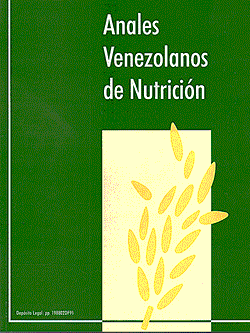Guías alimentarias, elementos para el camino hacia la sostenibilidad
DOI:
https://doi.org/10.54624/2023.36.2.005Palabras clave:
Guías Alimentarias, GABAS, Sistemas Alimentarios, Dietas Saludables, Dietas Sostenibles, Dietary Guidelines, FBDG, Food Systems, Healthy Diets, Sustainable DietsResumen
La preservación de la triada salud, bienestar y desarrollo del potencial del individuo descansa sobre una adecuada alimentación. Esta revisión pretende abordar algunos elementos a considerar ante una inminente actualización de las guías alimentarias hacia la sostenibilidad. La transformación de los sistemas alimentarios es una prioridad, dada la relación entre estos y la mejora de la salud poblacional y no solo de la salud ambiental. Un consumo responsable con dietas de calidad beneficia a la sociedad local e internacional, la ecología y la economía y las guías alimentarias siguen siendo la herramienta para llevar a la práctica las diferentes recomendaciones en materia alimentaria, alineadas con los principios de la Organización Mundial de la Salud y el desarrollo sostenible. La comparación entre las guías alimentarias existentes mostró algunos elementos útiles para su actualización con enfoque sostenible, siendo ellos: el contexto, el propósito, la necesidad de armonización, el significado de la sostenibilidad, la inclusión y el impacto sobre el ambiente-salud-producción. La actualización de las guías alimentarias es útil y necesaria para brindar estrategias y respuestas oportunas ante una población cada vez más responsable de su autocuidado y de su papel de cara a la preservación del medio ambiente para las futuras generaciones. Desafíos tan importantes como el incremento en el consumo de alimentos de origen vegetal, la preferencia por pescado o ave frente a la de carnes rojas y la reducción de las pérdidas y el desperdicio de alimentos y el equilibrio entre beneficios nutricionales y ambientales siguen siendo los principales hitos en la actualización de guías alimentarias basadas en la sostenibilidad.
The preservation of the triad of health, well-being and development of the individual’s potential rests on adequate nutrition. This review aims to address some elements to consider in the face of an imminent update of dietary guidelines towards sustainability. The transformation of food systems is a priority, given the relationship between these and the improvement of population health and not only environmental health. Responsible consumption with quality diets benefits local and international society, ecology and the economy, and dietary guidelines continue to be the tool to put into practice the different recommendations on food matters aligned with the principles of the World Health Organization and sustainable development. The comparison between existing dietary guidelines showed some useful elements for their update with a sustainable approach, these being: the context, the purpose, the need for harmonization, the meaning of sustainability, inclusion and the impact on the environment-health-production. The update of dietary guidelines is useful and necessary to provide timely strategies and responses to a population that is increasingly responsible for its self-care and its role in preserving the environment for future generations. Challenges as important as the increase in the consumption of plant-based foods, the preference for fish or poultry over red meat, the reduction of food losses and waste, and the balance between nutritional and environmental benefits remain the main milestones in the updating of food guidelines based on sustainability.
Descargas
Descargas
Publicado
Cómo citar
Número
Sección
Licencia
Derechos de autor 2024 Yaritza Sifontes

Esta obra está bajo una licencia internacional Creative Commons Atribución-NoComercial 4.0.

Este obra está bajo una licencia de Creative Commons Reconocimiento-NoComercial 4.0 Internacional
Usted es libre de:
Compartir — copiar y redistribuir el material en cualquier medio o formato
Adaptar — remezclar, transformar y construir a partir del material
La licenciante no puede revocar estas libertades en tanto usted siga los términos de la licencia
Bajo los siguientes términos:
Atribución — Usted debe dar crédito de manera adecuada, brindar un enlace a la licencia, e indicar si se han realizado cambios. Puede hacerlo en cualquier forma razonable, pero no de forma tal que sugiera que usted o su uso tienen el apoyo de la licenciante.
NoComercial — Usted no puede hacer uso del material con propósitos comerciales.
No hay restricciones adicionales — No puede aplicar términos legales ni medidas tecnológicas que restrinjan legalmente a otras a hacer cualquier uso permitido por la licencia.


